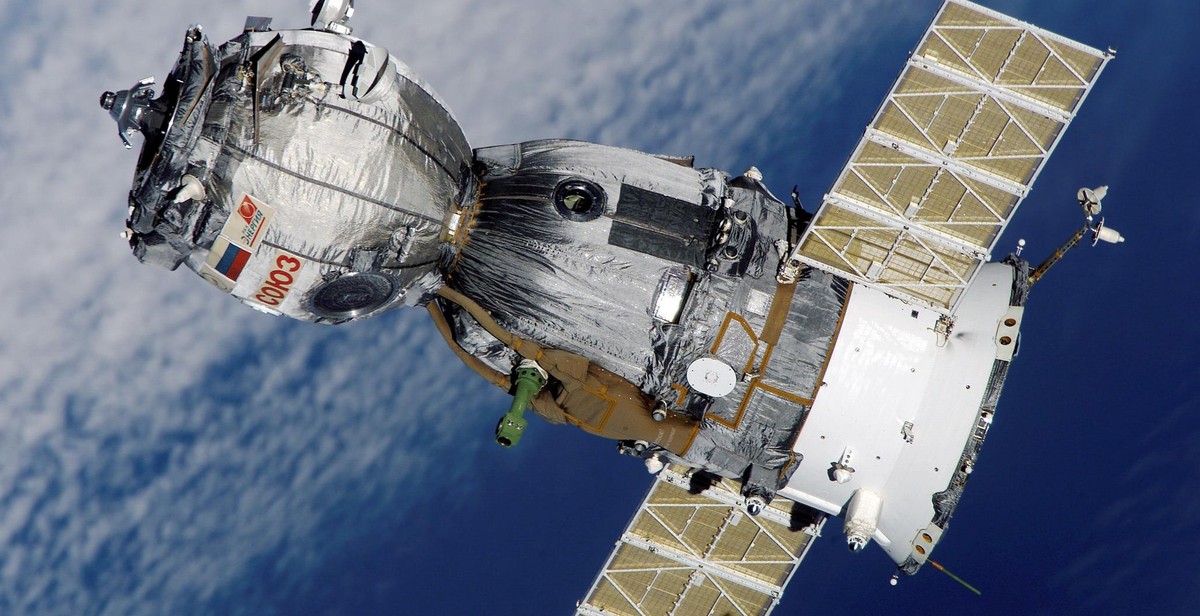How will humans conquer the space before 2030?
The idea of space exploration has always fascinated mankind. It is a topic that has been explored in science fiction novels for centuries. However, in recent years, space exploration has become more than just a matter of fantasy. It has become a reality, and for good reason.
Why space exploration is important
Space exploration has numerous benefits for humanity. It allows us to learn more about the universe we live in, and it helps us understand our place in the cosmos. It also has practical applications, such as the development of new technologies and the exploration of potential new habitats for human life.
Furthermore, space exploration has been a catalyst for international cooperation and collaboration. It has brought together scientists, engineers, and researchers from all over the world to work towards a common goal.
The current state of space exploration
Currently, space exploration is dominated by government agencies such as NASA, ESA, and Roscosmos. However, in recent years, the private sector has also entered the space race. Companies such as SpaceX, Blue Origin, and Virgin Galactic are developing new technologies and launching missions into space.
The International Space Station (ISS) is currently the only manned space station in orbit, and it has been continuously occupied since November 2000. However, plans for future space stations, such as the Lunar Orbital Platform-Gateway and the Chinese Space Station, are in development.
With all these developments and advancements, it is not impossible to imagine humans conquering space before 2030. The question is, how will we do it?

Advancements in Technology
Humanity’s dream of conquering space has been fueled by numerous advancements in technology, including reusable rockets, spacecraft propulsion systems, artificial intelligence, and robotics.
Reusable Rockets
The development of reusable rockets has revolutionized space exploration, making it more affordable and accessible. SpaceX, Blue Origin, and other companies have successfully landed and reused rockets, reducing the cost of launching payloads into space. Reusable rockets also enable the possibility of space tourism and the colonization of other planets.
Spacecraft Propulsion Systems
Spacecraft propulsion systems are critical for exploring and traveling through space. Conventional chemical rockets have limitations in terms of speed and efficiency, which is why scientists are exploring alternative propulsion systems such as ion engines, nuclear propulsion, and solar sails. These technologies could enable faster and more efficient space travel, making it possible to reach distant planets and even other star systems.
Artificial Intelligence
Artificial intelligence (AI) is transforming space exploration by enabling autonomous spacecraft, rovers, and robots. AI algorithms can analyze vast amounts of data, make decisions, and perform tasks without human intervention. This technology can help us discover new planets, study asteroids, and search for extraterrestrial life.
Robotics
Robotics is another technology that is advancing space exploration. Robots can perform tasks that are too dangerous or difficult for humans, such as exploring deep space or repairing spacecraft in orbit. NASA’s Mars rovers, for example, have provided valuable data about the red planet’s geology and potential for life.
- Robots can also build structures and habitats on other planets, making it possible for humans to live and work in space for extended periods of time.
- The combination of AI and robotics can enable the creation of intelligent robots that can adapt to changing environments and perform complex tasks with precision.
Conclusion
Advancements in technology are propelling us closer to conquering space. Reusable rockets, spacecraft propulsion systems, artificial intelligence, and robotics are just some of the technologies that are making space exploration more accessible, affordable, and efficient. With these tools, we may be able to reach distant planets, explore other star systems, and even establish human colonies beyond Earth before 2030.

Collaboration Among Countries
The International Space Station (ISS) is a prime example of global cooperation for space missions. The ISS is a joint project between five space agencies: NASA, Roscosmos (Russia), JAXA (Japan), ESA (Europe), and CSA (Canada). This collaboration has allowed for a continuous human presence in space for over 20 years.
The success of the ISS has paved the way for future international space missions. As space exploration becomes more complex and expensive, it is becoming increasingly clear that no single country can go it alone. Collaborative efforts among countries are essential for the success of future space missions.
Benefits of Collaboration
Collaboration among countries has numerous benefits for space exploration. First and foremost, it allows for the sharing of resources and expertise. Each country brings its own unique strengths to the table, and by working together, they can achieve more than they would on their own.
Collaboration also helps to spread the cost of space missions among multiple countries. This is important, as space exploration can be incredibly expensive. By sharing the cost, countries can accomplish more than they would be able to on their own.
Global Cooperation for Future Missions
Looking to the future, it is clear that global cooperation will be essential for the success of space missions. As countries develop their own space programs, it is important that they work together to achieve common goals.
One example of this is the Artemis program, which is a collaborative effort between NASA, ESA, and JAXA. The goal of the Artemis program is to establish a sustainable human presence on the moon by 2024. This ambitious goal would not be possible without the cooperation of multiple countries.
Overall, collaboration among countries is key to the success of space exploration. As we look to the future and plan for more complex missions, it is important that countries continue to work together to achieve common goals.

Private Space Companies
Private space companies have taken up the challenge of making space exploration more accessible and affordable. Here are three of the most prominent private space companies:
SpaceX
SpaceX, founded by Elon Musk in 2002, is a company that designs, manufactures, and launches advanced rockets and spacecraft. Its goal is to reduce space transportation costs and enable the colonization of Mars. SpaceX has successfully launched and landed reusable rockets, and has sent astronauts to the International Space Station (ISS). Its Falcon Heavy rocket, which can carry up to 64 metric tons to low-Earth orbit, has been used to launch satellites and payloads for government and commercial customers.
Blue Origin
Blue Origin, founded by Amazon CEO Jeff Bezos in 2000, is a company that develops technologies to enable human access to space. Its New Shepard spacecraft, which can carry up to six passengers, has completed successful test flights, including a suborbital flight that took its first passenger to space in 2021. Blue Origin’s focus is on creating a sustainable presence in space, with plans to build a lunar lander for NASA’s Artemis program.
Virgin Galactic
Virgin Galactic, founded by Richard Branson in 2004, is a company that aims to make space tourism a reality. Its SpaceShipTwo spacecraft, which can carry up to six passengers and two pilots, has completed successful test flights and is expected to begin commercial flights in the near future. Virgin Galactic has already sold tickets to over 600 individuals, including celebrities and wealthy individuals, who are eager to experience weightlessness and see the Earth from space.
These private space companies are pushing the boundaries of space exploration and inspiring a new generation of space enthusiasts. With their innovative technologies and ambitious goals, they are paving the way for humans to conquer space before 2030.

Challenges to Overcome
While the idea of humans conquering space before 2030 seems exciting and promising, there are several challenges that need to be overcome. These challenges include:
Costs
One of the biggest challenges to overcome is the cost of space exploration. Building and launching spacecraft, maintaining them, and supporting the crew on board is an expensive endeavor. Funding for space exploration is often limited, and it can be difficult to justify the cost when there are pressing issues on Earth that require attention. To overcome this challenge, there needs to be a significant investment in space exploration from governments and private companies.
Environmental and Health Risks
Space exploration comes with environmental and health risks that need to be addressed. The harsh conditions in space, such as radiation exposure and microgravity, can have negative effects on human health. Additionally, space debris and the impact of rocket launches on the environment need to be considered. To overcome these challenges, advanced technology and safety measures need to be developed to protect astronauts and mitigate the impact on the environment.
Legal and Ethical Considerations
As humans explore space, there are legal and ethical considerations that need to be taken into account. There are international laws and treaties that govern space exploration, and issues such as ownership of resources and territorial claims need to be addressed. Additionally, ethical considerations such as the treatment of animals in space experiments and the potential impact on alien life need to be considered. To overcome these challenges, there needs to be a global effort to establish clear guidelines and regulations for space exploration.
In conclusion, while there are challenges to overcome in the quest for space exploration, with the right investments, technology, and regulations, humans can conquer space before 2030.

Conclusion
The exploration of space has always been a topic of interest for humans. With the advancements in technology and science, it is now possible to achieve the dream of conquering space. The future of space exploration looks bright, and it is expected that humans will conquer space before 2030.
Private space companies leading the way
Private space companies such as SpaceX, Blue Origin, and Virgin Galactic are leading the way in space exploration. They are investing billions of dollars in developing reusable rockets and spacecraft that can take humans to space. These companies are also working on developing technologies that can make space travel safer and more affordable.
International collaboration
International collaboration is also playing a significant role in space exploration. Countries such as the United States, Russia, China, and India are working together to achieve their space exploration goals. The International Space Station is a great example of international cooperation in space exploration.
Challenges to overcome
There are still many challenges that need to be overcome before humans can conquer space. These challenges include developing technologies that can withstand the harsh conditions of space, finding a way to make space travel more affordable, and addressing the health risks associated with long-duration space travel.
The future of space exploration looks bright
In conclusion, the future of space exploration looks bright, and it is expected that humans will conquer space before 2030. Private space companies and international collaboration are playing a significant role in making this dream a reality. Although there are still challenges to overcome, the advancements in technology and science are making it possible for humans to explore and conquer space like never before.
